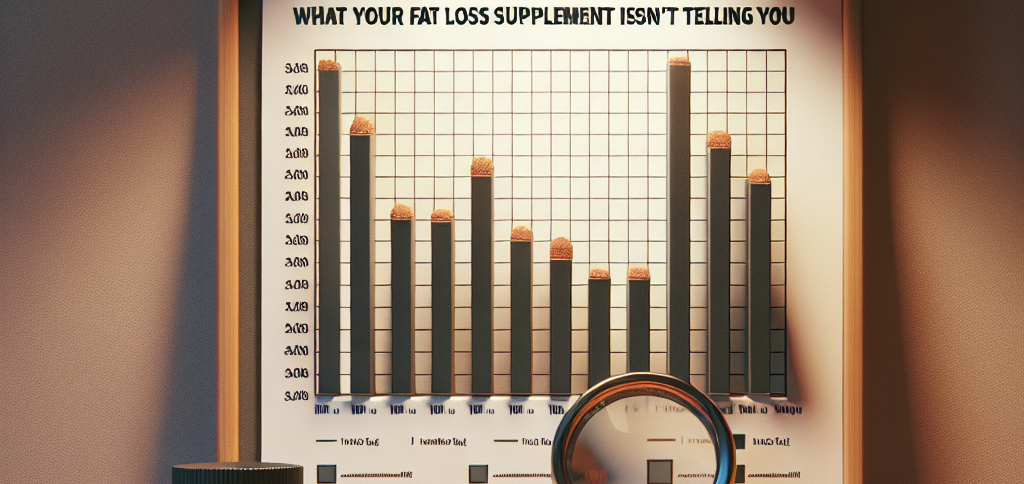In the pursuit of a healthier lifestyle and effective weight management, many individuals turn to fat loss supplements. While some may yield phenomenal results, it is crucial to be informed about the potential side effects that may accompany their use. This article will explore ten possible side effects of fat loss supplements, helping you make informed decisions about your health.
1. Jitters and Anxiety
One of the most common side effects associated with fat loss supplements is increased heart rate, jitters, and heightened anxiety levels. Many fat loss products contain stimulants such as caffeine or synephrine, which can lead to feelings of restlessness and nervousness. If you are sensitive to stimulants or have a history of anxiety disorders, it is wise to choose stimulant-free options.
2. Digestive Issues
Fat loss supplements often include ingredients that can disrupt normal digestive functions. Users frequently report issues such as bloating, gas, diarrhea, or constipation. Natural supplements might be better tolerated, but it’s crucial to research ingredients and consult a healthcare professional, especially if you have pre-existing gastrointestinal issues.
3. Insomnia
For those who take fat loss supplements containing stimulants, insomnia is a common consequence. These stimulants can interfere with sleep patterns, making it difficult to fall asleep or stay asleep. Individuals who are sensitive to stimulants should take such supplements early in the day or opt for non-stimulant alternatives.
4. Increased Blood Pressure
Certain fat loss products can elevate blood pressure levels, posing risks for individuals with hypertension or heart-related issues. Regular monitoring of blood pressure is essential while on these supplements. If you experience significant fluctuations, stopping the supplement and consulting a doctor is advised.
5. Nutrient Deficiencies
Some fat loss supplements act as appetite suppressants, which might lead to inadequate nutrient intake. Prolonged use can result in vitamin and mineral deficiencies. A balanced diet is crucial for overall health, and you should consider how supplements fit into your nutritional regime. Consulting a healthcare provider or a registered dietitian can be invaluable in assessing your dietary needs.
6. Mood Swings
The alteration of hormonal levels due to certain fat loss supplements may lead to mood swings, irritability, or changes in temperament. Some users report aggressive behavior or increased emotional sensitivity. Consider this potential side effect if you have a history of mood disorders, and consult a professional if you notice significant changes.
7. Heart Complications
Serious heart complications, although less common, can occur with certain fat loss supplements. Ingredients like ephedra, which was once popular in weight loss products, have been linked to heart attacks and strokes. Always avoid banned or unregulated substances, and clarify the ingredients in a supplement before use.
8. Liver and Kidney Stress
Some fat loss supplements can stress the liver and kidneys, especially when used for extended periods. Research indicates that certain ingredients may cause liver damage or impair kidney function. If you have any underlying liver or kidney conditions, it is crucial to speak with a healthcare professional before beginning any fat loss supplement regimen.
9. Allergic Reactions
Allergic reactions can happen with any supplement and may range from mild skin irritations to severe anaphylactic responses. Common allergens in supplements can include shellfish and soy. Always read labels carefully, especially if you have known allergies, and consult with a healthcare professional if you have concerns.
10. Long-term Health Risks
Finally, the long-term safety of many fat loss supplements remains largely uncertain due to inadequate research. Some ingredients may have unknown side effects or long-term complications that become evident only years after use. Thus, it’s essential to scrutinize the benefits and risks of these supplements, and weigh them against sustainable lifestyle changes, like exercise and a balanced diet.
Making an Informed Decision
With the plethora of fat loss supplements on the market, understanding potential side effects is critical to safely navigating your weight loss journey. Before starting any new supplement, consider consulting a qualified healthcare provider, particularly if you have underlying health conditions or are taking other medications.
If you feel compelled to explore fat loss supplements further, it’s essential to access reputable information sources. Click Here to learn more about safe and effective options, which can help you on your journey towards a healthier lifestyle without risking unwanted side effects.
Conclusion
While fat loss supplements can potentially assist in achieving weight loss goals, being aware of their side effects is crucial for maintaining health and safety. Prioritize your wellbeing by making informed choices, seeking guidance from professionals, and—most importantly—embracing a holistic approach that incorporates balanced nutrition and physical activity. Remember, the path to health is not a sprint but a marathon, and educated decisions pave the way for long-term success.






